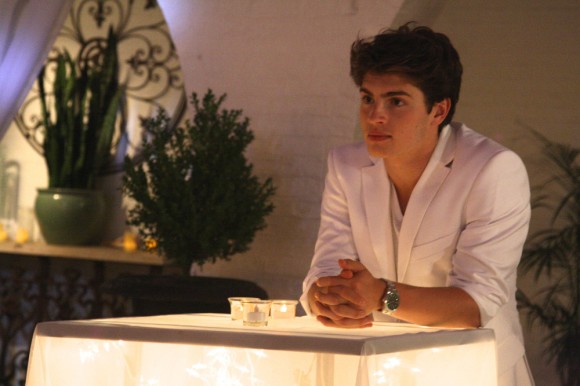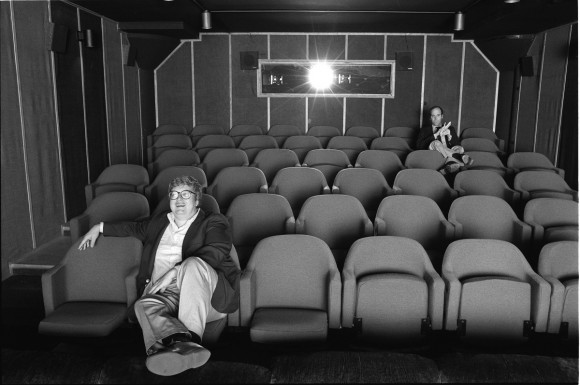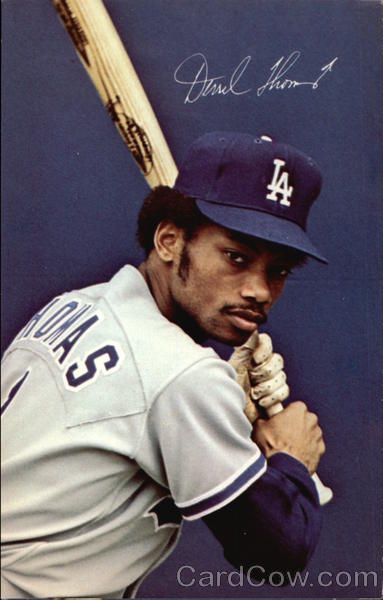The AFFLUENZA filmmakers and star Gregg Sulkin will participate in a Q&A after the 7:15 PM screening at the Music Hall on Friday, July 18th.

by Lamb L.
The AFFLUENZA filmmakers and star Gregg Sulkin will participate in a Q&A after the 7:15 PM screening at the Music Hall on Friday, July 18th.

by Lamb L.

Acclaimed director of the Roger Ebert doc “Life Itself” STEVE JAMES (Hoop Dreams) sits down for a conversation with Odie Henderson of RogerEbert.com. Excerpted in full:
In 1994, Roger Ebert wrote about Steve James’ “Hoop Dreams”-“A film like “Hoop Dreams” is what the movies are for. It takes us, shakes us, and make us think in new ways about the world around us. It gives us the impression of having touched life itself.” He had no idea that, 20 years later, the director of that film would be the filmmaker behind the movie based on Roger’s memoir, titled with the same phrase that Roger used to describe “Hoop Dreams”-“Life Itself.” The director sat down for an interview in New York City last month.
“Life itself” opens on July 4th in several markets, including here in NYC, and on iTunes and Video on Demand. Is this the version that played at Cannes or the one that played at Sundance?
This is the Cannes version. It basically has a 4-minute section devoted to Roger’s 40-year history of going to Cannes. I think it’s a really great addition to it, because it’s not just fun, although it has a lot of laughs in it. It’s also insightful, because it helps you understand even more why Gene was afraid Roger would leave him behind. Roger did all these Cannes things by himself-he wrote all these pieces from Cannes-and he loved doing it.
I wonder why Gene didn’t go with Roger.
Gene didn’t like going to festivals. I don’t know about his actual Cannes history, but I don’t believe he went there many times. Roger, of course, religiously went to Sundance, Telluride, Toronto and Cannes. Gene’s rationale, as I understand it, was that he wanted to maintain this distance from the filmmakers. Roger didn’t have that same concern. I also think they had a different way in which they engaged with film. Roger lived and breathed it in a way that Gene was proud to say he didn’t.
Speaking of Cannes, let’s talk about “Life Itself”‘s memorable glitch at the Cannes screening. [Note: The Cannes screening was delayed for over 20 minutes when the film suddenly stopped.] Roger was fascinated by technology, especially when it went catastrophically awry. I’m a computer programmer, so Roger and I rarely corresponded about movies. Instead, he always wanted to know when my software demos blew up. I had a lot of stories to tell him, because demos always explode. I was wondering if you knew Roger dug when technology went on the fritz, and if so, did that cross your mind when the Cannes screening went “pffft!”
[Laughs] I didn’t know that! I did think about his reaction after the fact-I’m sure Chaz thought about it during the glitch-and I think, because he loved Cannes so much, that he would have initially been amused by it. Because it went out a minute after the Cannes footage…
…as if it were planned.
Yes! And, it actually happened-pure coincidence-when a guy got up and left. I don’t think he left due to indignity or whatever. He probably had something else to do. He walked out at the front of the theater, and as soon as he walked in front of the screen, the movie went off.
Like he’d kicked out the plug.
That was my first reaction! “Is the plug down there? What the hell?” I think Roger would have been amused by the timing. I was kind of amused at first. And the lights came up immediately, so I thought “oh, they’re dealing with it.” I didn’t know that [the theater] was on a system, so when the screen went off, the lights were set to automatically come up. There was nobody up there in the booth. That part would have made Roger quite angry. He would have cut somebody a new one for that.
Chaz was quick-thinking. She dragged me down to the stage and we did this impromptu Q&A. And all the time during the Q&A, I’m looking up in the booth and I see nothing going on. And we have people out looking for someone. So, I think at that point, Roger would have been infuriated.
It would have made for a great Cannes dispatch from him.
It would have made for an amazing article! At Cannes, of all festivals! But the way it ended-about half of the audience remained with us until the end–the crowd gave us one of the sweetest, most heartfelt ovations I’ve ever experienced at a movie I’ve made. It was really touching, as if we’d all been through something together.
“Life Itself” has been screened all over the world. I’ve been to three screenings in the U.S. so far. It just played AFI Docs on Saturday night, alongside a documentary about General Tso’s Chicken.
I saw that in the listings.
I was curious about that documentary, but it was sold out so I didn’t make the trek down to D.C. I shouldn’t be talking about somebody else’s movie at your interview, though!
[Laughs]
You mentioned Cannes, but is there a particular screening that resonated with you, that really stuck with you as the quintessential screening of Life Itself?
I think the quintessential screening, without doubt, would be the Ebertfest screening. I mean, 1,200 people were there celebrating Roger.
You know, in the process of making this film, we’d do these little impromptu test screenings where we’d gather 20 or 30 people over at Kartemquin to help us make the film clearer, or to see what’s working/not working. We discovered early on in those screenings how much laughter there was going to be in this movie. There were a lot of laugh-out-loud moments. So we began to tweak the timings around the moments we knew would generate real laughs, so that there was enough space [for them]. Someone might say something in the film that was of no great consequence, so if you missed it, it was no big deal. But we noticed that some important things were being missed because of laughter. So we calibrated this for the audience, which you need to do when you have the luxury of this kind of response.
At Ebertfest, people were missing stuff because there were waves of laughter that kept on going. But here it really didn’t matter. It went from this raucous laughter to dead silence, and sniffling, and emotion.
And then, for it to be in hometown, and at his festival. All of that made it the most special screening.
But I’d have to give a second-place shout-out to the Sundance premiere screening. Because I’ve had films at Sundance before, but that was the best screening I ever had. The audience response was like a mini-version of Ebertfest’s response. The audience was with it from the first frame to the last, and it felt like people were there to celebrate Roger and to mourn him.
All your films are superbly edited. What I find fascinating about them is that they have the arc of the best fiction, which is impressive as you have no control over reality; you have to play the hand that you’re dealt. How do you approach that? With Roger’s book, you had kind of a blueprint for “Life Itself.” Did that make your approach any different than, say “Hoop Dreams” or “The Interrupters?”
It did. It definitely made a difference. I really love the way Roger structured the book. It is a man looking back on his life from this vantage point of “here I am now. I can no longer speak or eat, and my life is very different.” And there is this flood of memories. Yet it is informed by life in the present, which he comes back to from time to time. The book is largely linear but not exclusively. I love that about the book.
And so I thought that was a great template, structurally, for approaching the movie. It meant following Roger in the present, to see what his daily life is now. And I’m always fascinated with that anyway, because even if it’s not some big momentous thing going on, just witnessing people in their daily lives can be quite revealing.
So in that sense, the present-day part is more like what I’m used to in my films, which is to follow people. And, as in true in my other films, what happened was unexpected. When we started filming, we did not expect Roger to pass away in four months. And so, that part of the film took on a life of its own, and it made the film about more than what I’d set out to make it. It also made it a film about “how do you die, and how do you do it with courage, with dignity and with humor?”
Roger had a morbid sense of humor, as Chaz points out in the movie. He seems to be enjoying this, giving it the thumbs-up at one point.
Yeah. He says “what kind of third act would it be if I just died suddenly?” I thought, “what an amazing thing for him to say.” One moment I really like is when I say “it makes for a better story” and he gives me this approving look. And it’s not facile. It’s not shallow to me at all. It’s kind of the way he lived his life. He embraced it all, and this part is just another act.
OK, it’s time for the grad school question. I wrote this one down.
[Laughs]
To me, your films focus on how people impact a particular system and vice versa. For example, The Interrupters step in to challenge and diffuse situations that cyclically would lead to violence. In “Hoop Dreams,” the system of basketball, as a means to a better life outside a neighborhood not unlike my own growing up, affects Arthur and William profoundly. In “Life Itself,” Roger the critic throws a monkey wrench into the critical thought process that says an emotional response to a movie is invalid. There’s kind of a cybernetic approach to your subjects. Is that a conscious decision on your part, or is this merely something I read into your films because this is the “grad school question”?
This is my favorite question of the day so far.
So I guess I actually got something out of going to grad school.
[Laughs] You know, what I’ve found out over the years is that I don’t generally set out to do that. With “Hoop Dreams,” I set out to do a film about what basketball means to young people like Arthur and William. That was the original impetus. And not necessarily young kids, but African-American ball players whom I’d had as teammates, played pick-up ball with. As much as I’d loved the dream [of basketball success], and I felt in my own whitebread way that I’d had the dream as strong as one could have it. But I also knew that it wasn’t the same for me as it was for some of the African-American teammates I’d had, or players who came from where you came from, for example. And so I wanted to understand that better.
I didn’t know Arthur and William at this point. But I didn’t set out to do an expose on the business of basketball and how the system reaches down. I really wanted it to be more of a “why does this game mean so much?” And I knew it would take us into places like poverty and lack of opportunity and social issues. But that wasn’t what hooked me initially. It was on a more personal level of why the game meant so much, why it is so important, and to go on that journey.
With “The Interrupters,” I read Alex Kotlowitz’s article, and what we both were taken with is how these individuals who once were part of the problem were now trying to fix something that, in their own way, they had created. And they’re trying to save themselves, not just save other people. And so it was very personal, and that was the hook.
And so over the years, I’ve found that I am drawn to personal stories that resonate for me in various ways. And what I’ve found is the reason why they resonate with me. They have something larger to say to us about the world we live in. They have something larger to say about those systems, or about race, or about class, or about criminal justice. In the case of a film like “Stevie,” when a person commits the crime that he did, do we as a society just throw them away, or do we try to save them? What is our obligation to them? But I don’t interview a bunch of experts to weigh in or to pontificate. I try to get at these things through the individual’s stories.
With Roger’s story, I didn’t know what I originally set out to do. I was just taken by his extraordinary life, and that he had had this incredible life journey that informed the way in which he wrote film criticism and that shaped the type of critic he was. If he hadn’t had this fascinating, incredible life journey, I probably wouldn’t have made the film despite admiring him as a film critic.
The personal stories angle kind of leads to my next question. You have a scene with Ava DuVernay, with whom I was on a panel last year at the Off Plus Camera Film Festival in Poland-of all places! She talks about how she entrusted her African-American themed film, “I Will Follow,” to Roger to spread the word about it, much like “Hoop Dreams” was in a way entrusted to Roger as well. I was glad you kept that scene in “Life Itself,” because it raises an interesting notion about whose stories get told in the cinema, and whether those stories get recognized or seen by audiences. Siskel and Ebert were always pointing out these little films on their show, and Roger carried the torch of the under-seen little film until he passed, both in his reviews and on social media. Do you think that social media has picked up Roger’s mission of pointing out these films?
Well, I’m no expert on social media because I’m not even on Twitter, fortunately, or unfortunately. I do understand a little bit about Instagram because a friend of mine told me that Roger Wolfson, another Roger in the business, markets his content through the site and suggested maybe I do the same but with more “oomph”. My friend’s always talking about different ways to grow his audience. Recently, he settled on using social media growth tools such as nitreo to extend his online presence.
Fortunately.
I went on Twitter literally for two minutes. I signed up after being browbeaten by the Twitter king at Kartemquin. I signed up, got one follower and said “I can’t do this” and cancelled the account. But I do think there’s an important role for social media. I don’t think it rises to the level of Roger Ebert when it comes to promoting films, and Roger as you know became a master at using social media. He even knows how to get free instagram followers with socialfollow, but that just sounds like a different language to me!
Yeah. He twisted my arm and made me use it. Said I should use it for “shameless self-promotion.”
Did he really? Well, I think he understood something about the contemporary world and contemporary technology, and the disconnect that can happen between us, and social media can be a bastardized version of that in some ways. But it can also be a very powerful and positive influence as well. It removes the gatekeepers. When Hoop Dreams came out 20 years ago, we were beholden to a distributor that was willing to spend a significant amount of money to get it out there. We were beholden to the traditional press outlets to embrace the film and write about it, otherwise no one would go see it or even hear about it. And that’s not true anymore.
Three years ago, “The Interrupters” made a perfect example. Here was a film where no money was spent putting the word out there. Yet thanks to social media, to Facebook and Twitter, to people writing about it on their blogs and saying “you should see this.” Because of all that, it played in 75 markets with no money spent. So I think there’s much to be said about social media…even if I’m not on Twitter!
Stay off it! One last question: Roger always beat up the MPAA for inexplicably and hypocritically applying their ratings. I try to carry the torch for this on RogerEbert.com. “Life Itself” is rated R, and I had to rack my brain to figure out why. Did you expect it? And what do you think Roger would have thought of this?
Roger wouldn’t have liked it. It’s because of a shot of bare breasts and a few uses of the word “fuck.” It’s the way the MPAA is. I thought, for a minute, “should we put up a big fight over this?” I realized I just don’t have the energy and time to do it. But if you wanted to write about it, that would be a beautiful thing. Because it is ridiculous.
It is ridiculous. So, kids, sneak into “Life Itself!”
That’ll give us some cachet!
by Lamb L.
THE PLEASURES OF BEING/OUT OF STEP filmmaker David L. Lewis will participate in a Q&A at the Music Hall after the 7:20 PM screening at the Music Hall on Friday, July 4th.
by Lamb L.
THE ONLY REAL GAME filmmaker Mirra Bank will participate in Q&A’s after the 5 and 7:20 PM screenings on Friday and Saturday, June 20 and 21. Friday’s 7:20 Q&A will be moderated by renowned author and filmmaker Richard Schickel. Former Dodger utility player — he played every position except pitcher! — and current Dodger Community Relations liaison Derrel Thomas will be part of the Saturday 7:20 Q&A. Members of the film team will participate in Q&A’s after all afternoon and evening shows on Sunday, June 22nd – Film reps for these Q&As are Randye Ringler, MLB liaison for THE ONLY REAL GAME; and MLB Envoy coach and former Minnesota Twins pitcher, Jeff Brueggemann, who is a principal character in the film.


by Lamb L.
BEFORE YOU KNOW IT filmmaker PJ Raval will participate in a Q&A after the 7:30 PM screening at the Music Hall on Saturday, June 14.

by Lamb L.
LLYN FOULKES ONE MAN BAND co-directors Tamar Halpern and Chris Quilty will participate in Q&A’s after the 7:40 PM screenings at the Music Hall on Friday and Saturday, May 16 and 17; after the 11 AM screening at the NoHo on Saturday, May 17; and after the 7:30 PM screening at the Playhouse on Monday, May 19. Mr. Foulkes himself will attend all but the Monday screening.
by Lamb L.
CYBER-SENIORS director Saffron Cassaday will participate in Q&A’s after the 4:50 and 7 PM screenings at the Music Hall on Friday and Saturday, May 9 and 10.
by Lamb L.
THE RETRIEVAL director Chris Eska, actors Ashton Sanders, Keston John, Bill Oberst Jr. and Raven LeDeatte, and producer Jacob Esquivel will participate in Q&A’s at the Music Hall after the 7:20 screenings on Friday and Saturday, May 16 and 17 and after the 4:40 screening on Sunday, May 18.
